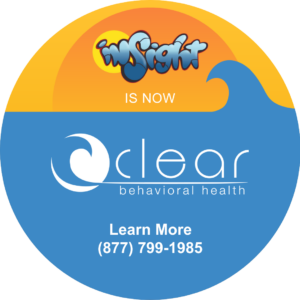It was not that long ago when much stigma was attached to mental illness. Not to mention, people suffering from gender identity issues or sexual orientation issues were often classified as having a mental illness. Fortunately, advances in this area of medicine have been made. However, some of the most common misconceptions surrounding mental illness continue to have a negative impact on many people needing treatment.
#1. People With Mental Illness Need to Be Locked Up
This misconception stems from the belief that if someone has a mental illness, they cannot be independent or care for themselves. So, it is better to have them confined and locked up in a mental health treatment facility. Yet, many people with mental illness can live independently and take care of themselves provided they are seeking proper care to manage their mental health.
#2. People With Mental Illness Are Psychopaths
Sadly, many people believe those with mental illnesses will behave violently and abnormally socially because they are unstable. However, while psychopathy is a mental health disorder, there are several traits one must exhibit to be defined as a psychopath. Furthermore, only about 1% of people diagnosed with mental illness are psychopaths
Additionally, those diagnosed with certain types of mental health disorders are more likely to inflict self-harm rather than harm others. For example, someone with major depressive disorder is more likely to experience suicidal thoughts and even attempt to carry out the act than try to hurt someone else.
#3. Mental Illness Can Only Be Treated With Medications
Some people can benefit from medications to treat their mental illness. However, many people do not require medications to be treated. There are different types of talk therapies and holistic treatments that can be very effective for certain types of mental health disorders.
#4. Only Military Veterans Can Experience PTSD
Many people think that PTSD is a mental health disorder that only former military personnel experience. Yet, that is not true as anyone who has experienced trauma, or traumatic events could develop PTSD as well.
#5. People With Mental Illness Cannot Function Socially
Some people believe those with mental illness cannot handle being placed in social settings. Yet this is not true. On the contrary, many people diagnosed with mental illnesses benefit from interacting with others socially as it can give them a sense of belonging.
#6. People With Mental Illness Cannot Work
Another common misconception about mental illness is you cannot work. Although, many people with mental health disorders can maintain a job quote well. In many cases, working provides a sense of purpose and structure they need.
#7. Children of People With Mental Illness Will Also Be Mentally Ill
This is not entirely accurate or true. While family history can increase the risks of developing a mental health disorder, many children are perfectly healthy, even when one or both parents suffer from a mental illness.
#8. The Treatments for Mental Illness Are Scary
This misconception came about, in part, to movies and TV shows that depicted people with mental illness negatively. For example, they would show that the only way to treat mental disorders was by keeping patients sedated, locked in padded rooms, restrained in straight jackets, and given electroshock therapy. In extreme cases, a lobotomy would be administered.
Even though these practices were common in the early days of treating mental illness, things have come a long way. Treatments today consist of a combination of modern therapies, including talk therapies, holistic treatments, and specific medications when required.
The Most Common Misconception Surrounding Mental Illness
Even with all the other common misconceptions surrounding mental illness, the most common one is if you develop a mental health disorder, it is because you are weak. A large number of people firmly believe that having a mental health disorder is a sign of weakness brought about by one’s inability to take control of their life.
This belief also stems from old societal views of a male-dominant society. Males have long been raised to be strong and not show emotions, no matter what is wrong. They are taught from an early age it is better to just remain silent when things are bothering them because of all the stigma associated with showing weakness and having a mental illness.
Furthermore, openly sharing one’s feelings or talking about mental illness is unusual behavior for males. So, out of fear of being shunned by their peers, men have difficulty opening up and seeking help when they need it. However, the men who seek help are actually stronger because they are taking responsibility for their mental health and well-being.
Mental Health Treatment in Redondo Beach, CA
When you or someone in your family is struggling with a mental health disorder, it is essential to seek treatment in a safe, comfortable, compassionate, and supportive environment. At Clear Behavioral Health in Redondo Beach, CA, we offer comprehensive mental health disorder treatments for adults and teens suffering from depression, ADHD, OCD, bipolar disorder, anxiety, and co-occurring disorders involving addiction.
For further information about our mental health disorder treatment and addiction treatment programs, please feel free to contact us by calling today!

